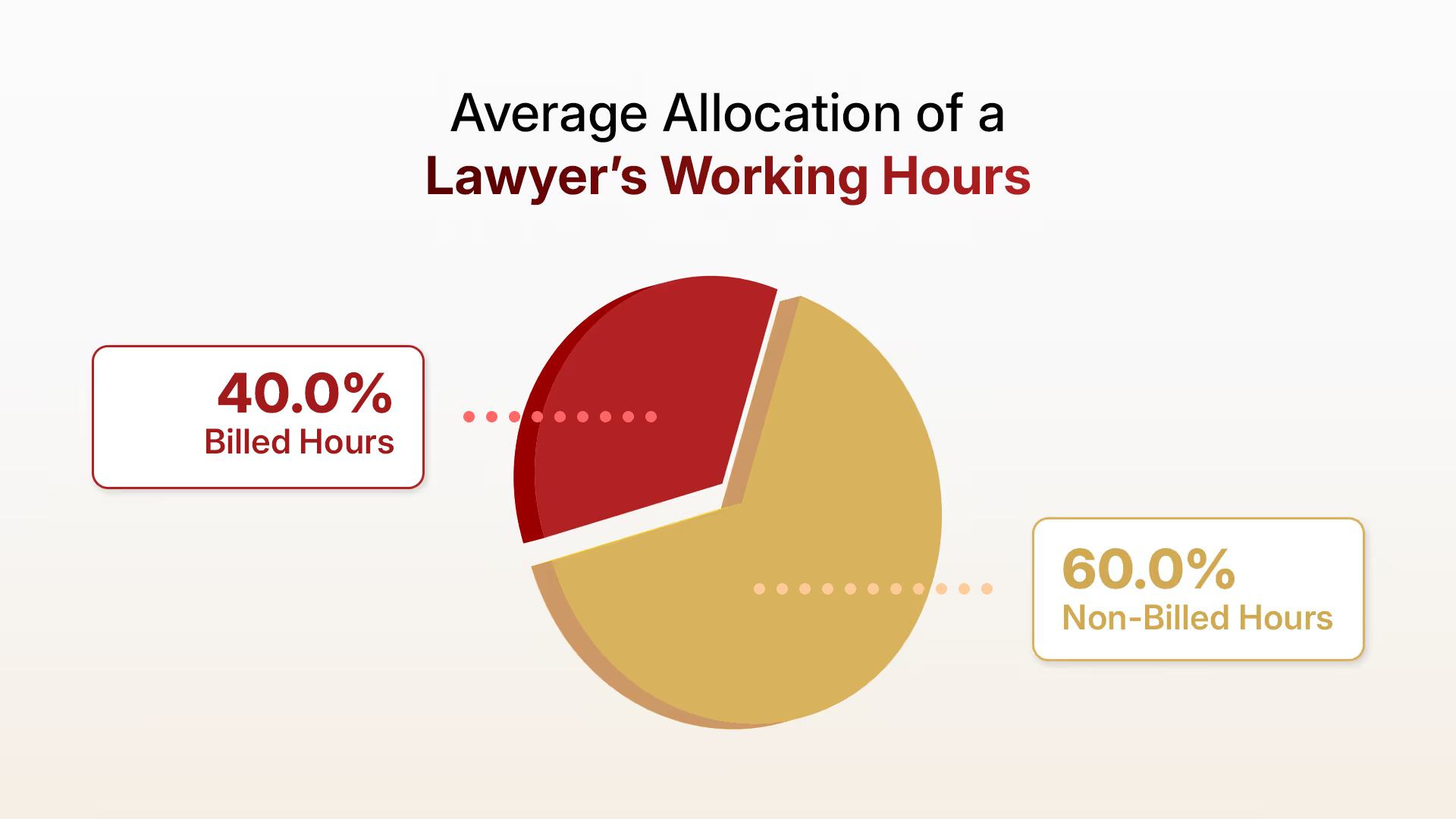Running a successful law firm requires more than just strong legal expertise—it also depends on efficient case management for law firms, streamlined communication, and cost-effective operations. That's where a remote case manager can make a game-changing difference. By embracing legal process outsourcing and delegating this critical role to skilled alternative legal service providers, your firm gains the support it needs to handle cases smoothly while freeing up attorneys to focus on higher-value legal work and achieve better work life balance for lawyers.
Here are 10 key benefits of hiring a law firm case manager remotely:
1. Significant Cost Savings
Hiring an in-house legal case manager can be expensive once you factor in salary, office space, equipment, benefits, and ongoing training. These expenses add up quickly, especially for smaller firms. A remote case manager eliminates most of these overhead costs while providing legal administrative support through secure remote work solutions.
Key cost savings include:
- Many firms save 50% to 70% in total case management or staffing costs compared to hiring in-house
- Savings on salaries, benefits, office rent, utilities, and equipment
- Labor cost reductions of up to 70% compared to local full-time employees (especially when using virtual legal assistants in regions with lower cost of living like the Philippines)
"Companies using virtual assistants or remote staffing in regions with lower cost of living (such as the Philippines) report labor cost reductions of up to 70% compared to local full-time employees."
— Relay Human Cloud, "The Cost of Hiring Local vs Offshore: A Breakdown,"
Additional financial benefits:
- Remote case managers eliminate the need for additional office furniture, computer equipment, and software licenses
- No need to provide parking spaces, office supplies, or contribute to increased utility bills
- Firms avoid hidden costs associated with employee turnover, such as recruitment fees, training time, and productivity loss during transition periods
Freed up resources can be reinvested into law firm growth strategies, marketing, or improved client care. This financial flexibility allows firms to be more strategic with their investments, potentially funding technology upgrades, marketing campaigns, or expanding into new practice areas that would have been financially challenging with higher overhead costs.
2. Access to Skilled Legal Professionals
Remote case managers are not just administrative staff. They are trained professionals with experience in the U.S. legal system who understand legal project management principles. They know how to manage deadlines, organize documents, and handle client communications with accuracy and professionalism.
Professional qualifications:
- In a survey of remote paralegals and legal assistants in the U.S., 82% worked remotely in some capacity, and 32% were fully remote
- Over 70% of clients believe communication is the most important skill for a paralegal
- These professionals often bring diverse experience from working with multiple law firms and practice areas, including specialized areas like immigration law support and family law case management
Key advantages:
- Many have specialized certifications in legal software platforms and cloud based case management systems
- They stay current with legal industry trends and continuing education requirements
- The remote legal professional market is competitive, giving firms access to high-quality talent that might be unavailable or unaffordable in their local market
- No challenges of local recruitment, lengthy interview processes, or risk of hiring someone who may not be the right cultural fit
3. Improved Case Organization and Digital File Management
Every law firm relies on organized case files to operate effectively. A remote case manager ensures that all documents, deadlines, and communications are logged and managed within your legal software through efficient digital file organization and online legal document management systems. This reduces the risk of errors, missed deadlines, or lost information, helping improve law firm efficiency while attorneys focus on legal strategy instead of administrative follow-up.
Critical statistics:
- Missed deadlines account for 28% of all legal malpractice claims, according to recent Professional Liability Fund data
- Lawyers waste as much as 6 hours per week on document management issues
- Over 2 hours spent searching for documents that can't be found, according to IDC research
Organizational improvements:
- A dedicated remote case manager brings systematic approaches to file organization that many busy attorneys struggle to maintain consistently
- They create standardized naming conventions, implement version control systems, and ensure that all case-related communications are properly documented and easily retrievable through secure collaboration platforms
- This level of organization extends to maintaining accurate calendaring systems, tracking discovery deadlines, and coordinating with opposing counsel on scheduling matters
The result is a more professional appearance to clients and opposing parties, as well as reduced stress for attorneys who can trust that critical information is properly maintained through remote access protocols. Remote case managers also often serve as a backup system, ensuring that if an attorney is unavailable, case information can still be accessed and managed effectively.
4. Faster Case Resolution and Response Times
Cases often stall due to delays in communication, scheduling, or document handling. A remote case manager keeps every detail moving forward through effective legal project management. By coordinating with clients and attorneys, monitoring deadlines, and ensuring documents are prepared on time, they help your firm resolve cases more quickly and provide faster response times that clients appreciate.
The efficiency problem:
- Lawyers lose 40% of the time they spend working to inefficient, manual processes that cover work outside the practice of law
- This includes tracking deadlines by hand to sifting through spreadsheets for case updates
How remote case managers accelerate cases:
- They act as project coordinators, proactively identifying potential bottlenecks before they become problems
- They maintain regular communication with all parties involved in a case, ensuring that everyone stays informed and accountable for their responsibilities
- This proactive approach prevents the common scenario where cases languish due to unclear next steps or missed communications
- They help attorneys with time management for attorneys by providing regular status updates and flagging cases that need immediate attention
By maintaining momentum on all cases simultaneously, remote case managers help firms achieve more predictable timelines and better client satisfaction. The faster resolution times also mean increased cash flow, as cases are completed and billed more efficiently, improving the firm's overall financial health and allowing attorneys to take on new matters more quickly.
5. Scalability for Your Firm's Growth
Law firms often face fluctuations in workload. During busy seasons, you may need extra support, while slower periods do not justify a full-time hire. Remote case managers give you the flexibility to scale up or down as needed, supporting your law firm growth strategies without the commitment of permanent staffing.
Industry data on scaling:
- About 70% of U.S. law firms outsource or use virtual/outsourced paralegal services when caseloads spike, rather than hiring additional in-house staff
- A Thomson Reuters report found that 79% of corporate legal departments report increased workloads without a corresponding rise in internal staffing resources
Scalability advantages:
- This scalability is particularly valuable for firms that handle seasonal work, such as tax law, personal injury cases that may spike during certain times of year, or firms that take on large project-based work
- Remote case managers can be brought in for specific cases or time periods without the commitment and cost of permanent hires
- They can also be scaled up gradually as the firm grows, allowing for more controlled expansion without the risk of overcommitting to fixed costs
- The flexibility extends to specialization as well – firms can access remote case managers with specific expertise in areas like medical malpractice, intellectual property, immigration law support, or family law case management as needed
This adaptability allows your firm to stay productive without committing to long-term staffing costs, while also providing the ability to take on cases or clients that might otherwise exceed the firm's current capacity. It's a strategic advantage that allows firms to be more responsive to market opportunities and client needs.
6. Enhanced Client Communication and Experience
Clients expect clear communication and timely updates. A remote case manager helps your firm deliver on this expectation by improving client experience through consistent communication, answering routine inquiries, and providing status updates. With consistent communication facilitated by encrypted communication tools, clients feel supported and confident in your services, which can improve client retention and strengthen client relationships.
The communication challenge:
- Nearly 80% of law firm clients report feeling "uncared for" when communication is lacking, according to a comprehensive 2025 Legal Client Experience Report by Case Status
- While 72% of attorneys describe their firm as "caring," only 40% of clients agree
"While 72% of attorneys describe their firm as 'caring,' only 40% of clients agree. Additionally, just 21% of clients said they felt reassured that their legal team cared about their experience or asked for feedback. This disconnect highlights a significant perception gap between how service is delivered and how it is received."
— Case Status, "Nearly 80% of Law Firm Clients Feel Uncared For: New Survey Reveals Major Disconnect,"
Communication improvements:
- Remote case managers often excel at client communication because it's a primary focus of their role, unlike attorneys who must balance client communication with complex legal work
- They can provide more frequent updates, respond to routine questions more quickly, and maintain a consistent, professional tone in all communications
- This dedicated attention helps building client trust and satisfaction, leading to increased referrals and the ability to attract new clients
- Remote case managers can also help educate clients about the legal process, explaining procedures and timelines in accessible language that helps manage expectations
They serve as a reliable point of contact that clients know they can reach for updates or concerns. Effective communication through a remote case manager can help bridge this gap and strengthen client relationships, ultimately leading to more referrals, positive reviews, and a stronger reputation in the legal community.
7. Time Savings and Better Work-Life Balance for Attorneys
Attorneys should spend their time practicing law, not managing paperwork or chasing schedules. A remote case manager handles intake, scheduling, follow-ups, and case coordination, giving attorneys more time to focus on litigation, negotiations, and client representation. This leads to better productivity, improved outcomes for your firm, and contributes to a healthier work environment that supports work life balance for lawyers and addresses mental health in the legal profession.
Current time allocation problems:
- According to Clio's Legal Trends Report, U.S. attorneys spend only 2.9 hours (37%) of an 8-hour workday on billable legal tasks
- Research consistently shows that lawyers typically bill only 30-40% of their total working hours

Benefits of time savings:
- The time savings created by remote case managers allow attorneys to take on more complex, high-value work that requires their specialized legal expertise
- Instead of spending time on routine tasks like document organization, scheduling, and basic client communications, attorneys can focus on case strategy, legal research, and court appearances
- This shift not only increases billable hours but also improves job satisfaction for attorneys who entered the profession to practice law, not manage administrative tasks
- The improved focus often leads to better case outcomes, as attorneys have more time to thoroughly prepare and develop winning strategies
Remote case managers also help attorneys maintain better work life balance for lawyers by handling many of the routine tasks that often extend into evening hours. By leveraging remote case managers, firms can shift much of that administrative burden off attorneys' plates, freeing them up to generate more billable work and serve clients more directly, while also reducing attorney burnout and improving overall firm morale.
8. Better Use of Technology and Digital Transformation
Many law firms invest in software such as Clio, MyCase, or Filevine but do not fully utilize these tools. Remote case managers are skilled in working within legal software platforms and cloud based case management systems, helping your firm take advantage of their full potential and supporting your digital transformation in law firms. From tracking time and expenses to organizing client records through online legal document management, they ensure your technology works as efficiently as possible.
Technology utilization gap:
- According to the ABA's 2022 Legal Technology Survey, 63% of firms report having case/practice management software available at their firms
- However, only 30% of lawyers personally use case/practice management software for law-related tasks, with usage varying significantly by firm size
How remote case managers maximize technology:
- Remote case managers often have experience with multiple software platforms and can help firms identify which features would be most beneficial for their specific practice areas and workflows
- They can assist in migrating data from older systems, training staff on new features, and developing standard operating procedures that maximize the software's effectiveness
- Many remote case managers stay current with software updates and new features, bringing fresh ideas and best practices from other firms they've worked with
- They can help integrate different software tools to create seamless workflows, such as connecting practice management software with accounting systems, document management platforms, and secure collaboration platforms
This expertise helps firms avoid the common pitfall of purchasing expensive software that sits underutilized, instead ensuring that technology investments generate real returns through improved efficiency and better client service.
9. Increased Productivity and Efficiency
When administrative bottlenecks are removed, your firm can operate more smoothly. A remote case manager keeps tasks moving, organizes documents, schedules deadlines, and ensures cases progress without unnecessary delays. The result is higher productivity and more efficient workflows across the entire firm, helping improve law firm efficiency and create a healthier work environment.
Productivity challenges:
- Document-management challenges cost law firms about 9.8% of their total productivity, according to the 2025 State of the Legal Market report
- A Thomson Reuters survey found that attorneys in small firms spend about 40% or more of their workday on non-legal administrative tasks
"According to Thomson Reuters' 2025 State of the Legal Market report, document management challenges cost law firms approximately 9.8% of their total productivity."
Efficiency improvements:
- The productivity gains from remote case managers often compound over time as they become more familiar with the firm's processes and clients
- They develop efficient systems for recurring tasks, create templates and checklists that ensure consistency, and identify process improvements that benefit the entire firm
- This systematic approach to case management reduces the mental load on attorneys, who no longer need to keep track of numerous administrative details
- Remote case managers also help prevent the productivity losses that occur when key tasks fall through the cracks or when attorneys must stop their legal work to handle urgent administrative matters
The improved efficiency often leads to faster response times on client requests, more predictable project timelines, and the ability to handle a higher volume of cases without sacrificing quality. This increased capacity allows firms to grow their revenue without proportionally increasing their costs, improving overall profitability and competitive positioning in the market.
10. A Competitive Advantage in the Legal Market
Law firms that use remote legal support are often more efficient, more cost-effective, and more client-focused. By hiring a remote case manager, your firm can reduce costs, improve case outcomes, and deliver a higher level of service. These advantages help you gain a competitive edge and stand out from competitors still relying solely on traditional staffing models.
Industry statistics:
- About 60% of legal professionals report cost savings associated with remote work
- 65% say that remote or hybrid arrangements lead to increased productivity
- 66% of law firms outsourcing support roles (e.g. administrative, document review) have reported enhanced efficiency
- Many clients say that quicker response times and clearer communications are key factors in choosing or recommending a law firm
Competitive benefits:
- The competitive advantage extends beyond operational improvements to include the firm's ability to offer more competitive pricing to clients while maintaining healthy profit margins
- Firms with remote case managers can often provide faster response times, more responsive communication, and more thorough case management than competitors using traditional models
- This service differentiation becomes particularly valuable in competitive markets where clients have multiple options
- Remote case managers also enable firms to take on cases or clients they might not have been able to handle previously due to capacity constraints
The flexibility and scalability of remote support allow firms to be more aggressive in pursuing new business opportunities and expanding into new practice areas. Additionally, the technology proficiency that comes with remote work arrangements often translates into more innovative service delivery methods that appeal to tech-savvy clients and younger attorneys considering where to work.
Why This Matters to You
Hiring a remote case manager isn't just another business expense—it's a strategic investment that pays you back in time, money, and peace of mind.
What You'll Gain:
More Money in Your Pocket
Cut overhead costs while improving law firm efficiency. No office space, no benefits overhead—just expert support when you need it.
Time Back in Your Day
Free your attorneys from administrative tasks so they can focus on billable work and client relationships that actually grow your revenue.
Happier Clients Who Stay Longer
Better case management means faster responses, clearer communication, and clients who feel valued—leading to stronger retention and referrals.
Room to Grow Without Growing Pains
Scale your practice without geographic limitations or fixed costs. Take on more cases without hiring full-time staff.
A Competitive Edge That Matters
As clients expect more sophisticated service, having a professional support structure sets you apart from firms still doing everything in-house.
Better Work-Life Balance for Your Team
Support mental health in the legal profession by reducing burnout and creating sustainable workloads.
The Bottom Line:
Remote case managers help you work smarter, earn more, and stress less—while positioning your firm for long-term success in an evolving legal marketplace.
Ready to gain these advantages? Hire a Remote Case Manager today and experience the difference professional remote support makes.

%20(2)%20(2).avif)








.png)














.avif)



